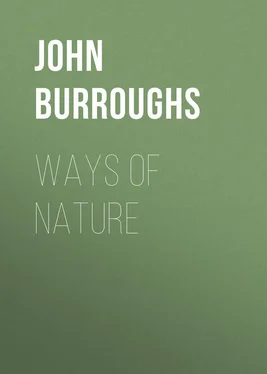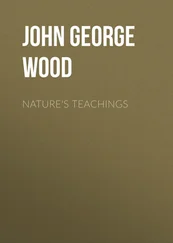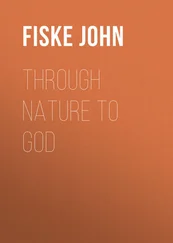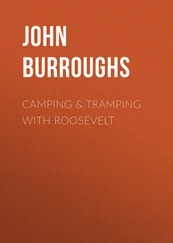John Burroughs - Ways of Nature
Здесь есть возможность читать онлайн «John Burroughs - Ways of Nature» — ознакомительный отрывок электронной книги совершенно бесплатно, а после прочтения отрывка купить полную версию. В некоторых случаях можно слушать аудио, скачать через торрент в формате fb2 и присутствует краткое содержание. Жанр: foreign_antique, foreign_prose, на английском языке. Описание произведения, (предисловие) а так же отзывы посетителей доступны на портале библиотеки ЛибКат.
- Название:Ways of Nature
- Автор:
- Жанр:
- Год:неизвестен
- ISBN:нет данных
- Рейтинг книги:3 / 5. Голосов: 1
-
Избранное:Добавить в избранное
- Отзывы:
-
Ваша оценка:
- 60
- 1
- 2
- 3
- 4
- 5
Ways of Nature: краткое содержание, описание и аннотация
Предлагаем к чтению аннотацию, описание, краткое содержание или предисловие (зависит от того, что написал сам автор книги «Ways of Nature»). Если вы не нашли необходимую информацию о книге — напишите в комментариях, мы постараемся отыскать её.
Ways of Nature — читать онлайн ознакомительный отрывок
Ниже представлен текст книги, разбитый по страницам. Система сохранения места последней прочитанной страницы, позволяет с удобством читать онлайн бесплатно книгу «Ways of Nature», без необходимости каждый раз заново искать на чём Вы остановились. Поставьте закладку, и сможете в любой момент перейти на страницу, на которой закончили чтение.
Интервал:
Закладка:
The power of bird-songs over us is so much a matter of association that every traveler to other countries finds the feathered songsters of less merit than those he left behind. The stranger does not hear the birds in the same receptive, uncritical frame of mind as does the native; they are not in the same way the voices of the place and the season. What music can there be in that long, piercing, far-heard note of the first meadowlark in spring to any but a native, or in the "o-ka-lee" of the red-shouldered starling as he rests upon the willows in March? A stranger would probably recognize melody and a wild woodsy quality in the flutings of the veery thrush; but how much more they would mean to him after he had spent many successive Junes threading our northern trout-streams and encamping on their banks! The veery will come early in the morning, and again at sundown, and perch above your tent, and blow his soft, reverberant note for many minutes at a time. The strain repeats the echoes of the limpid stream in the halls and corridors of the leafy woods.
While in England in 1882, I rushed about two or three counties in late June and early July, bent on hearing the song of the nightingale, but missed it by a few days, and in some cases, as it seemed, only by a few hours. The nightingale seems to be wound up to go only so long, or till about the middle of June, and it is only by a rare chance that you hear one after that date. Then I came home to hear a nightingale in song one winter morning in a friend's house in the city. It was a curious let-down to my enthusiasm. A caged song in a city chamber in broad daylight, in lieu of the wild, free song in the gloaming of an English landscape! I closed my eyes, abstracted myself from my surroundings, and tried my best to fancy myself listening to the strain back there amid the scenes I had haunted about Haslemere and Godalming, but with poor success, I suspect. The nightingale's song, like the lark's, needs vista, needs all the accessories of time and place. The song is not all in the singing, any more than the wit is all in the saying. It is in the occasion, the surroundings, the spirit of which it is the expression. My friend said that the bird did not fully let itself out. Its song was a brilliant medley of notes, – no theme that I could detect, – like the lark's song in this respect; all the notes of the field and forest appeared to be the gift of this bird, but what tone! what accent! like that of a great poet!
Nearly every May I am seized with an impulse to go back to the scenes of my youth, and hear the bobolinks in the home meadows once more. I am sure they sing there better than anywhere else. They probably drink nothing but dew, and the dew distilled in those high pastoral regions has surprising virtues. It gives a clear, full, vibrant quality to the birds' voices that I have never heard elsewhere. The night of my arrival, I leave my southern window open, so that the meadow chorus may come pouring in before I am up in the morning. How it does transport me athwart the years, and make me a boy again, sheltered by the paternal wing! On one occasion, the third morning after my arrival, a bobolink appeared with a new note in his song. The note sounded like the word "baby" uttered with a peculiar, tender resonance: but it was clearly an interpolation; it did not belong there; it had no relation to the rest of the song. Yet the bird never failed to utter it with the same joy and confidence as the rest of his song. Maybe it was the beginning of a variation that will in time result in an entirely new bobolink song.
On my last spring visit to my native hills, my attention was attracted to another songster not seen or heard there in my youth, namely, the prairie horned lark. Flocks of these birds used to be seen in some of the Northern States in the late fall during their southern migrations; but within the last twenty years they have become regular summer residents in the hilly parts of many sections of New York and New England. They are genuine skylarks, and lack only the powers of song to make them as attractive as their famous cousins of Europe.
The larks are ground-birds when they perch, and sky-birds when they sing; from the turf to the clouds – nothing between. Our horned lark mounts upward on quivering wing in the true lark fashion, and, spread out against the sky at an altitude of two or three hundred feet, hovers and sings. The watcher and listener below holds him in his eye, but the ear catches only a faint, broken, half-inarticulate note now and then – mere splinters, as it were, of the song of the skylark. The song of the latter is continuous, and is loud and humming; it is a fountain of jubilant song up there in the sky: but our lark sings in snatches; at each repetition of its notes it dips forward and downward a few feet, and then rises again. One day I kept my eye upon one until it had repeated its song one hundred and three times; then it closed its wings, and dropped toward the earth like a plummet, as does its European congener. While I was watching the bird, a bobolink flew over my head, between me and the lark, and poured out his voluble and copious strain. "What a contrast," I thought, "between the voice of the spluttering, tongue-tied lark, and the free, liquid, and varied song of the bobolink!"
I have heard of a curious fact in the life-histories of these larks in the West. A Michigan woman once wrote me that her brother, who was an engineer on an express train that made daily trips between two Western cities, reported that many birds were struck by the engine every day, and killed – often as many as thirty on a trip of sixty miles. Birds of many kinds were killed, but the most common was a bird that went in flocks, the description of which answered to the horned lark. Since then I have read in a Minnesota newspaper that many horned larks are killed by railroad locomotives in that State. It was thought that the birds sat behind the rails to get out of the wind, and on starting up in front of the advancing train, were struck down by the engine. The Michigan engineer referred to thought that the birds gathered upon the track to earth their wings, or else to pick up the grain that leaks out of the wheat-trains, and sows the track from Dakota to the seaboard. Probably the wind which they might have to face in getting up was the prime cause of their being struck. One does not think of the locomotive as a bird-destroyer, though it is well known that many of the smaller mammals often fall beneath it.
A very interesting feature of our bird-songs is the wing-song, or song of ecstasy. It is not the gift of many of our birds. Indeed, less than a dozen species are known to me as ever singing on the wing. It seems to spring from more intense excitement and self-abandonment than the ordinary song delivered from the perch. When its joy reaches the point of rapture, the bird is literally carried off its feet, and up it goes into the air, pouring out its song as a rocket pours out its sparks. The skylark and the bobolink habitually do this, while a few others of our birds do it only on occasions. One summer, up in the Catskills, I added another name to my list of ecstatic singers – that of the vesper sparrow. Several times I heard a new song in the air, and caught a glimpse of the bird as it dropped back to the earth. My attention would be attracted by a succession of hurried, chirping notes, followed by a brief burst of song, then by the vanishing form of the bird. One day I was lucky enough to see the bird as it was rising to its climax in the air, and to identify it as the vesper sparrow. The burst of song that crowned the upward flight of seventy-five or one hundred feet was brief; but it was brilliant and striking, and entirely unlike the leisurely chant of the bird while upon the ground. It suggested a lark, but was less buzzing or humming. The preliminary chirping notes, uttered faster and faster as the bird mounted in the air, were like the trail of sparks which a rocket emits before its grand burst of color at the top of its flight.
Читать дальшеИнтервал:
Закладка:
Похожие книги на «Ways of Nature»
Представляем Вашему вниманию похожие книги на «Ways of Nature» списком для выбора. Мы отобрали схожую по названию и смыслу литературу в надежде предоставить читателям больше вариантов отыскать новые, интересные, ещё непрочитанные произведения.
Обсуждение, отзывы о книге «Ways of Nature» и просто собственные мнения читателей. Оставьте ваши комментарии, напишите, что Вы думаете о произведении, его смысле или главных героях. Укажите что конкретно понравилось, а что нет, и почему Вы так считаете.












